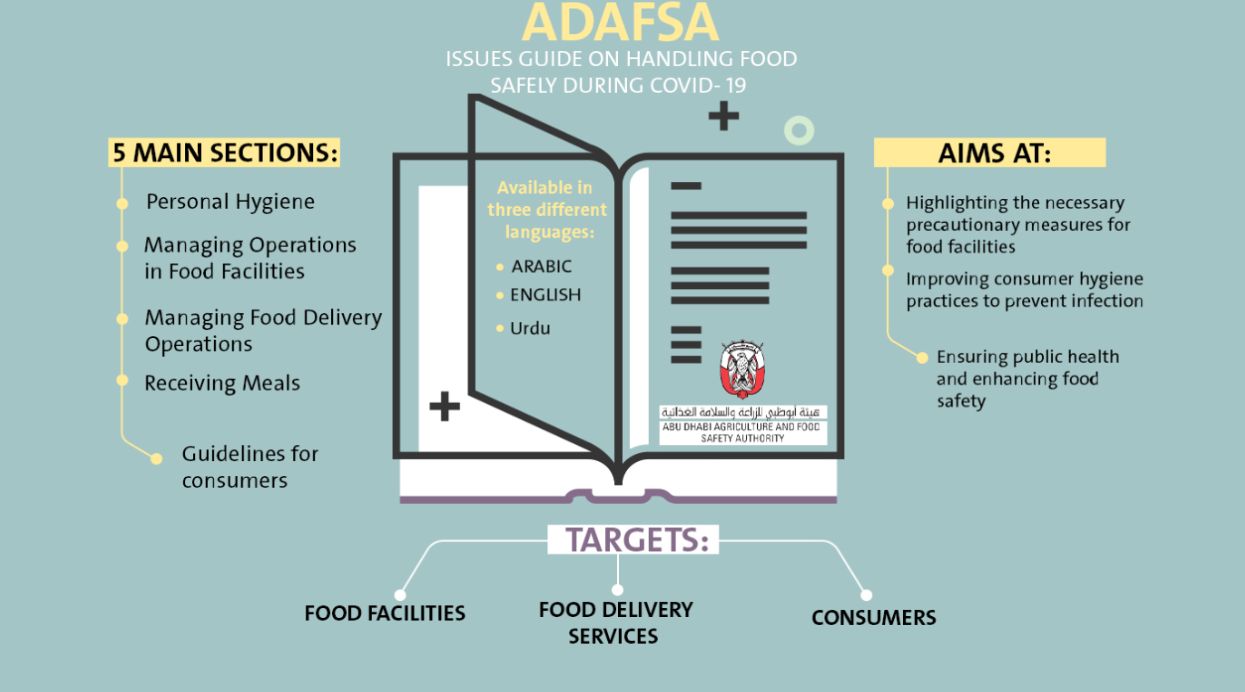As the UAE government is unlocking the COVID lockdown, the Abu Dhabi Agriculture and Food Safety Authority (ADAFSA) has issued guidelines for food safety practices. The safety measures, available in three languages, elaborate on precautionary measures to be followed when retail sellers handle and deliver food.
The guidelines have to be followed by retail food sellers and restaurants, keeping in mind the consumers' health and safety.
Dr. Mohammed Salman Al Hammadi, Director of ADAFSA's Legislation Division, shared that the guidelines are essential for handling and delivering food items. Persons dealing with supplying and selling food items must clean, disinfect them. The handlers should use personal protective equipment (PPE) in the best interest of consumers and workers' health.
Elaborating on the guidelines, Dr. Al Hammadi said the recommendations had been divided into five key areas – to ensure the personal hygiene of workers and consumers, management of retail stores operations, food-joints and restaurants, control of food orders delivery and receiving meals. There are standard guidelines for consumers, as well.
The instructions are available in Arabic, English, and Urdu.
The best practices are in line with the latest WHO recommendations, scientific reports, and the International Food Safety Authorities Network (INFOSAN) for dealing with the novel coronavirus.
The guidelines also have standard operations instructions for reporting and handling any suspected cases of COVID-19 among food workers. The facility supervisors will take suitable action when any suspected case has been reported.
The ADAFSA guidelines also have common queries about food and COVID-19 relationship.
For warehouses, restaurants, takeaways, and shops, ADAFSA recommends cleaning and sanitizing premises, following social distancing among workers, using PPE, educating workers, and monitoring operations frequently. Emphasis is also on revamping operations to ensure quality and food safety to consumers.
There are instructions about appropriate packages for packing and transporting foods and vehicles that can be used to deliver food.
In addition to collaborating with international health bodies, the ADAFSA has also been supporting mitigation of the COVID crisis by following local, regional, and international level norms.
ADAFSA documents on food safety and hygiene have been circulated widely among other countries.
WAM
 AR
AR UR
UR
